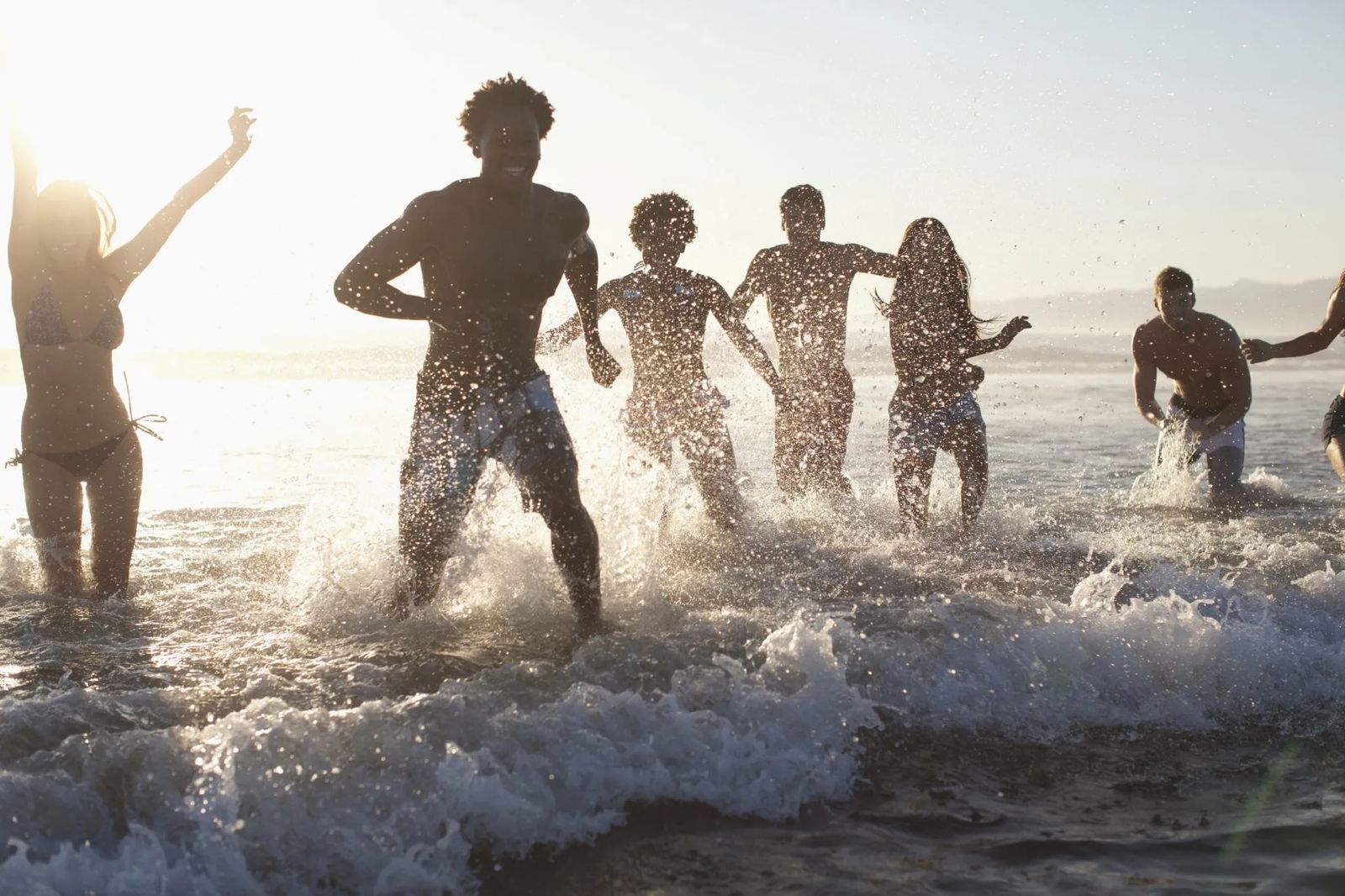
Keep the Bummer Out of Summer!
Enjoy the Sunshine Safely
Summer greets us like a long lost friend. There’s so much fun to be had. Enjoy a bike ride, spend an afternoon with the kids at the pool or linger over lunch on the patio. Since sunshine supplies us with most of our vitamin D and boosts our level of serotonin, the body’s natural ‘happy’ hormone, it’s no surprise we can’t seem to get enough of it. Unfortunately, when it comes to the sun, there can be too much of this good thing. That's why we called in the experts to make sure you and your family can relish in all the season has to offer — safely.
Sunstroke or heatstroke – which is it?
They’re actually the same thing. “The body cannot cool itself due to prolonged heat exposure,” says Dr. Julie Swanson, MD with St. Vincent Physician Network. “We lose our ability to thermo regulate – a fancy term for temperature control.” If we’re unable to sweat it out, we “are less able to cool ourselves.”
Spending too much time in the heat triggers symptoms and signs of a heatstroke that “include a high body temp, rapid, shallow breathing, rapid heart rate, nausea, vomiting and the skin becoming dry.” One might even get dizzy, lightheaded or confused. Dr. Swanson says these symptoms could develop over a few days or much sooner if dehydration sets in or while undergoing strenuous exercise in a hot environment.
Common medications, she advises, can also increase the risk of experiencing heatstroke. Please check with your doctor if you or someone you know is on Beta Blockers, diuretics, certain psychiatric medicines or anticholinergics, like nasal spray and inhalators.
Play it safe. “Stay hydrated. Drink plenty of water,” she says. Take time to adjust to the hot climate. “Avoid going outdoors to exercise in the mid-day heat when possible.”
Sun poisoning – as bad as it sounds!
“Sun poisoning refers to severe sun burn,” imparts Dr. Swanson. It’s a burn to exposed skin “due to lack of appropriate protection.” The pain can last for several days.
The symptoms of sun poisoning include nausea, dizziness and dehydration. You need to get out of the sun. Drink water and/or sports drinks. Our expert notes that over-the-counter pain relievers like acetaminophen or ibuprofen can help with discomfort, along with a cool bath, if possible. “Apply aloe or moisturizer to affected areas.”
Some medications like, “Retin A creams, oral contraceptives, tetracycline (antibiotic) and others” make our skin more sun-sensitive. So, before you head out for a day in the sun, be sure to check with your doctor or pharmacist.
And, when you do head out, make sure you've lathered up yourself and your kids with plenty of sunscreen. “We do need to use SPF (sun protection factor) 15-30 on a daily basis,” recommends Dr. Swanson. If you’re heading to the pool or going on a hike, “apply SPF 30 sun screen 30 minutes before and slather it on!” reapplying every one to two hours. Did you know, “premature skin aging is simply our unprotected exposure to UV light (sunlight).”
Dehydration – drink, Baby, drink!
You feel tired, irritable, and maybe dizzy and your mouth is dry? How about the color of your urine? Yes, your urine. Is it dark colored? If so, you better drink, drink, drink and we’re talking H20 here.
When you don’t drink enough water to replace what you lose each day you become dehydrated – your system dries out. Most of us should drink 64 to 100 ounces of fluid daily. That equates to eight to ten glasses of water. Whatever you plan to do, make sure you take water (flavored is a good idea) or even sports drinks with you, no matter the weather. Keep in mind, all drinks are not created equal. Coffee, sodas or juices with high sugar counts are diuretics which actually deplete your body of fluid.
Bugs, bees and wasps, oh my!
They bite, they sting, and they can invade a party. Though most unwanted attention from these tiny creatures causes mild itching and/or swelling, watch for something worse. “Injection of insect venom into our skin can cause allergic reaction,” says Dr. Swanson, like swelling, abdominal pain, nausea and trouble breathing.
If stung, remove the stinger and wash the affected area. Over-the-counter pain relievers can help, as may anti-histamines.
Beautiful Eyes
Wearing the latest, fashionable pair of shades looks cool. The best part is that a good 100 percent UV-blocking pair of sunglasses protects one of your most precious assets. We devote a lot of time to the outdoors, so, it’s imperative to look at why we need to play it safe when it comes to eye protection.
"UV (sunlight) exposure increases the risk of skin cancer, cataracts, macular degeneration and damage to the eyelids,” states Dr. Amanda Haber of Heights EyeCare. Sun damage is “cumulative” so it’s important, “That we get children in the habit of wearing them.”
Think of sunglasses protective to the eyes as helmets are to the head. She says children’s eyes can be damaged more significantly. “We encourage everyone, including infants, to protect their eyes from ultraviolet (UV) rays.”
Some pointers Dr. Haber offers? Should you or your little one wear glasses, then prescription lenses can be made. Polarized lenses are great at reducing glare (even if it’s a cloudy day the UV light still gets through). When you cover your eyes, don't forget to wear a hat for protection. If you are headed for water over the summer, you should know that the most damage (especially to kids’ eyes) comes from reflection from water, ground and pavement.
So when the temperature rises, make sure you and your family are safe from head to toe. Following these safety tips will not only protect you and yours from skin or vision damage, it will undoubtedly keep the bummer out of summer.









